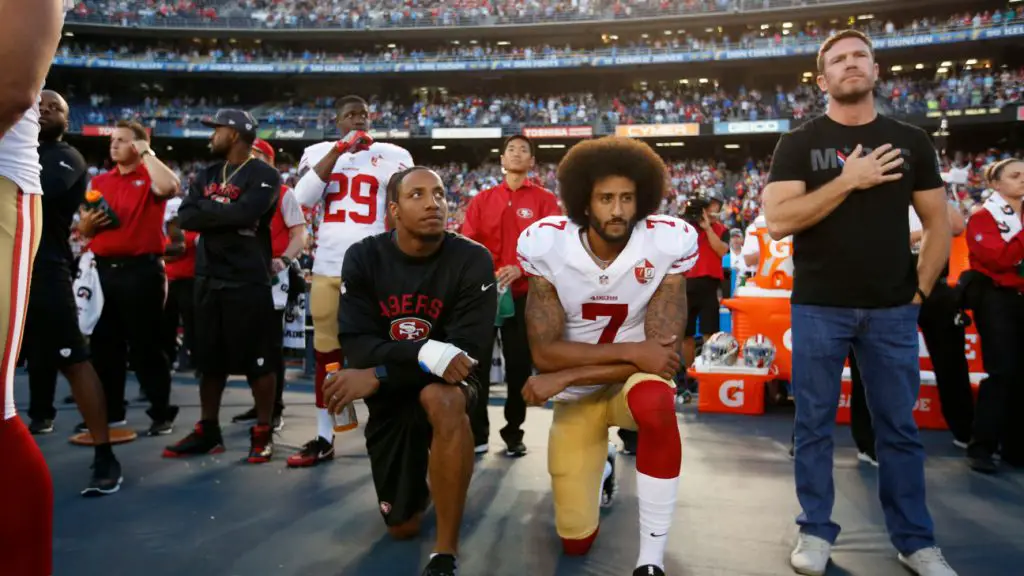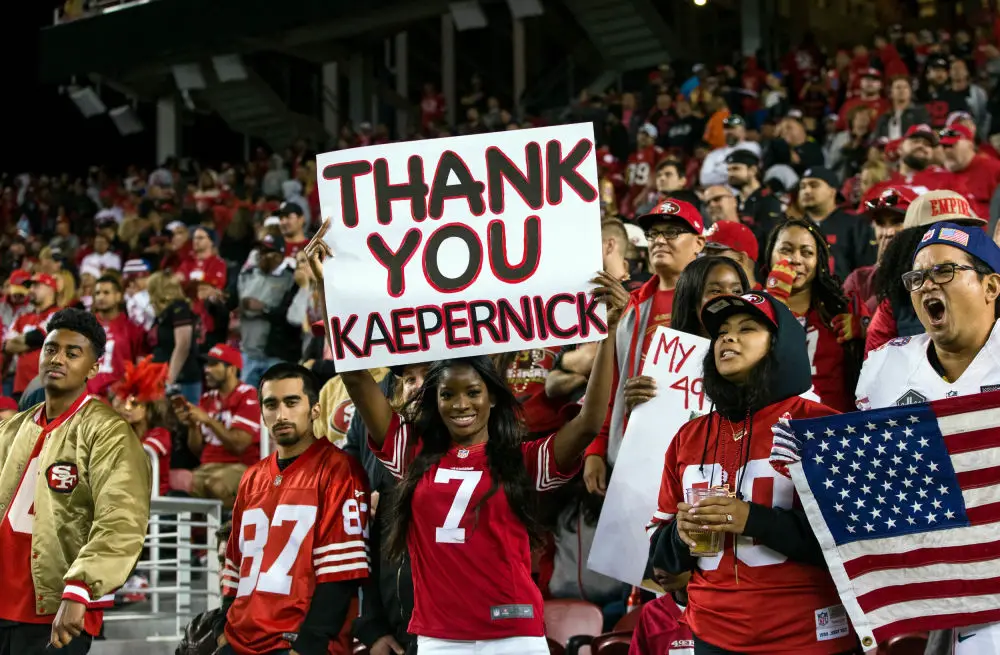“The Star-Spangled Banner,” within its third verse, speaks of the hiring of slaves to fight on behalf of the British during the War of 1812. It reads, “No refuge could save the hireling and slave/ From the terror of flight or the gloom of the grave.”
Scott Key, the man who wrote “The Star-Spangled Banner,” was unclear about his intent of the lyrics. He could have harbored resentment at those who, though hired to do so by the king, fought against the United States, or intended to defy this entire group of people through representing them as inferior.
The national anthem is a symbol of the pride. In elementary school, many schools have children sing the national anthem each morning before beginning daily classes. In high school, the national anthem is sung at each rally and sporting event to the entire student body and crowd.
At the professional level, the song is sung at every American sports event, including football, baseball, tennis, the Olympics, volleyball and hockey, you name it. There are countless occasions in which the anthem is proudly delivered to the crowd, sometimes by the best of the best singers.
The national anthem constitutes a declaration of the pride we hold for our country. However, due to the time period in which it was written, the anthem now appears inherently racist. This third verse, so uncommonly sung, shows how far the country has come.
In the present, the national anthem keeps reminding people of a darker chapter in U.S. history, in which not every man or woman was created equal. Although few are able to pick up on this verse, it is difficult to move forward without remnants of the past continuing to resurface.
Written 204 years ago, “The Star-Spangled Banner” has recently received stiff opposition due to the lyrics of the third verse. The first public display of this contention was Kaepernick’s protest during his games in 2017 for the 49ers. Kaepernick was the only one kneeling during the anthem before the game, and for many of these games, his silent protest went unnoticed.
Kaepernick reasoned that the words within the national anthem enticed recent afflictions of police brutality and the constant oppression of people of color. His protest, which began in early August, soon caught national attention and gained many followers.
By September, he had already been joined by both two other players, one from a different team and one from his own, giving rise to the national debate around the lyrics of the national anthem.

The refusal to positively partake in the singing of the national anthem has since seeped its way into the crevices of people’s lives; now the song is being questioned even at the high school level.
A high school in California, conveniently named California High School, has banned the singing of “The Star-Spangled Banner” in all of their school rallies despite previous decisions to omit the third verse, calling the song “outdated and racially insensitive.”
However, not the entire student body agreed on this prohibition of exemplary nationalism; it was solely an executive decision by their leadership council. Leadership is composed of a range of 30 – 40 students from each grade level, who are generally those with the most school spirit, making them the alleged “leaders” of the student body as the name implies.
Some students have already raised their opposition against having a small group of leaders decide on racial matters concerning the wants of the entire student body.
The San Ramon high school has since received publicity from KGO, ABC and the San Francisco Chronicle. A senior at California high school told the Chronicle in late January that “the importance of singing the national anthem (is) to honor and respect those who’ve died and sacrifice their lives to protect the freedoms that us Americans take for granted every day.”
To many, the anthem is considered a sacred piece of history that exemplifies the immense pride people hold for the country through everyday activities.
Others believe the national anthem does not fit present day society, which is constantly evolving to be more inclusive of all types of people, regardless of their race, gender and sexual orientation; it does not uphold the values stated within the national anthem and cannot continue these items of tradition without noting the influences of its words.
In support of the decision, a member of California High leadership says “there are other ways that (pride and patriotism) can be accomplished without an expense to inclusivity on our campus.”
Aspects of society that pose a threat to the growing diversity of the country and are, by nature, non-inclusionary should arguably face abolishment. As the culture and population evolve, the traditions must do so to accommodate.
According to student leaders at California High, it is irrelevant that the third verse of the national anthem is rarely sung. Within the student body, there have been mixed opinions on the decision.
Some state that it abolishes the students’ sense of pride for their country and disallow the demonstration of these feelings; however, most either maintain a neutral position or agree that a shift in the times calls for a shift in tradition.
Most of the people outside of the school are dumbfounded that students could even have the authority to enforce these kinds of decisions. Fox columnist Todd Starnes asks, “Where are the grown-ups in charge of this school?”
Through singing these words, are people making a choice to reiterate or positively reference these aspects of society which have since deteriorated? Or will they be able to respect the progress that others have made together in combating racism and the stereotypes it inflicts on those who are so valued?
Does the singing of these words contradict the evolution of legislation, social reform or the Civil Rights movement, and if so, whose choice is it to decide against it?
The decision to ban the singing of the national anthem at California High School has been effective since January 2018 and will be applied all rallies and sporting events for the duration of this school year. However, in the coming year, alterations may be made to the restrictions imposed on the student body.
Moving forward, a line must be drawn as to what is racially or culturally offensive and which traditions we will continue to implement in regard to its context.
It is up to the people to decide whether this symbol of nationalism contradicts a shift in times and whether the nationalism displayed through the anthem outweighs those who have the potential to feel alienated by its words.

















